
Editorial
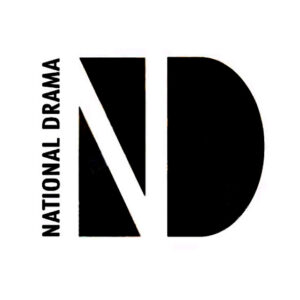
Volume 8 Editorial
This issue of Drama Research is unusual in that all the articles focus primarily on work with Primary age young people and in countries other than England: Turkey, the Republic of Ireland and Scotland.

Volume 8 Editorial
This issue of Drama Research is unusual in that all the articles focus primarily on work with Primary age young people and in countries other than England: Turkey, the Republic of Ireland and Scotland.
Articles
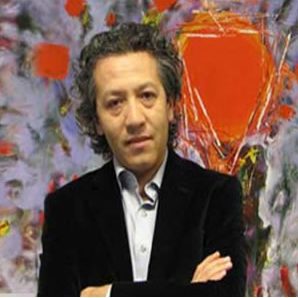
Drama in Education as one of the Opportunities of Cross‐Cultural Pedagogy
In a world deeply affected by globalisation, negotiating effectively across cultural diversities has vital and increasing importance.
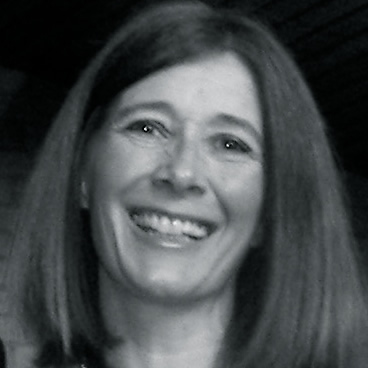
Discovering the value of ‘not knowing’.. Using drama for a deeper understanding of pedagogy and learning
This is the first phase of our research which looks to use drama development to increase pedagogical effectiveness within drama but more widely in other curricular areas also.

The Impact of Live Performance in Primary Schools in Ireland: A Case Study of the Abbey Theatre’s Priming the Canon Programme
Set against the context of the Arts in Education Charter, which encourages a partnership between artists and schools, this article reports on a study conducted with the Community and Education Department at the Abbey Theatre, the National Theatre of Ireland.

Drama in Education as one of the Opportunities of Cross‐Cultural Pedagogy
In a world deeply affected by globalisation, negotiating effectively across cultural diversities has vital and increasing importance.

Discovering the value of ‘not knowing’.. Using drama for a deeper understanding of pedagogy and learning
This is the first phase of our research which looks to use drama development to increase pedagogical effectiveness within drama but more widely in other curricular areas also.

The Impact of Live Performance in Primary Schools in Ireland: A Case Study of the Abbey Theatre’s Priming the Canon Programme
Set against the context of the Arts in Education Charter, which encourages a partnership between artists and schools, this article reports on a study conducted with the Community and Education Department at the Abbey Theatre, the National Theatre of Ireland.
Book Reviews
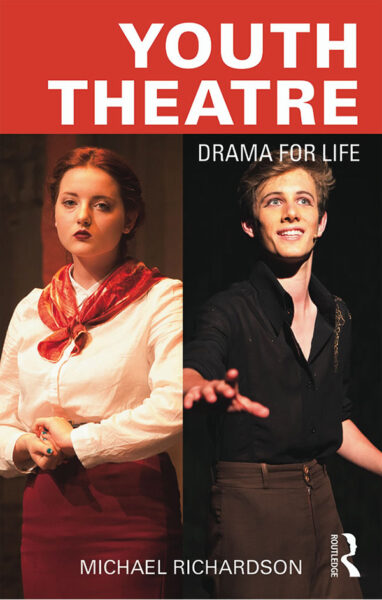
Youth Theatre – Drama for Life
Youth Theatre: Drama for Life defines the youth theatre process, by outlining its constituent parts and explaining how these activities work in order to support young people’s development. As well as describing what is done in youth theatre, it also explores why it’s done and how to ensure the best possible outcomes. Michael Richardson has worked in youth theatre for over 20 years, has been involved in the training of other practitioners, and in the strategic development of the youth theatre sector in the UK. As well as giving key tips and advice from his own invaluable experience, Richardson offers comments from practitioners and participants on what makes a successful youth theatre experience.
By Michael Richardson
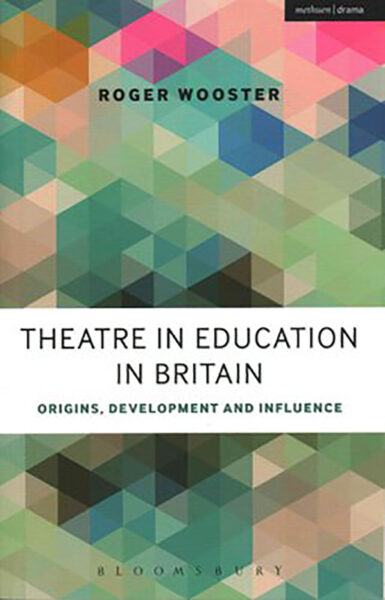
Theatre in Education in Britain: Origins, Development and Influence
Following on from the 50th anniversary of the birth of Theatre in Education in Britain in 2015, this is an essential and timely companion to the story of TIE. It contextualizes it within the political and educational landscape of the last fifty years and examines its legacy today. Through this, Roger Wooster offers insights into future possibilities and applications in the field of Applied Theatre, drama in schools and pedagogical theory. With examples and analysis of international developments in TIE, and a foreword by Philip Taylor (NYU, USA), the volume provides a wide-ranging account of past and current practice.
By Roger Wooster
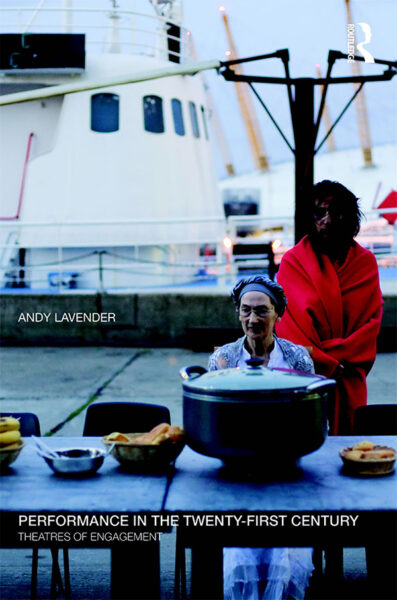
Performance in the Twenty-First Century
Performance in the Twenty-First Century: Theatres of Engagement addresses the reshaping of theatre and performance after postmodernism. Andy Lavender argues provocatively that after the ‘classic’ postmodern tropes of detachment, irony, and contingency, performance in the twenty-first century engages more overtly with meaning, politics and society. It involves a newly pronounced form of personal experience, often implicating the body and/or one’s sense of self.
By Andy Lavender
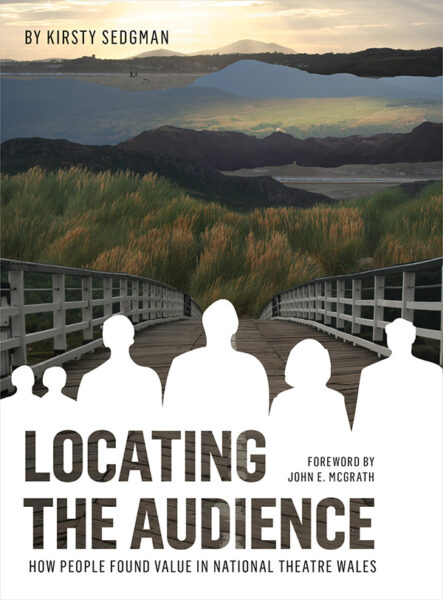
Locating the Audience: How People Found Value in National Theatre Wales
How do audiences experience live performances? What is gained when a national theater is born? These questions and more are the subject of Locating the Audience—the first in-depth study of how people form relationships with a new theater company. Investigating the inaugural season of National Theatre Wales, Kirsty Sedgman explores how different people felt about the way their communities were engaged and their places “performed” by the theater’s productions. Mapping the complex interplay between audience experience and identity, the book presents a significant contribution to our contemporary project of defining cultural value. Rather than understanding value as an end point—“impact”—Sedgman makes the provocative claim that cultural value can better be understood as a process. By talking to audiences and capturing pleasures and disappointments, Locating the Audience shows the meaning-making process in action.
By Kirsty Sedgman
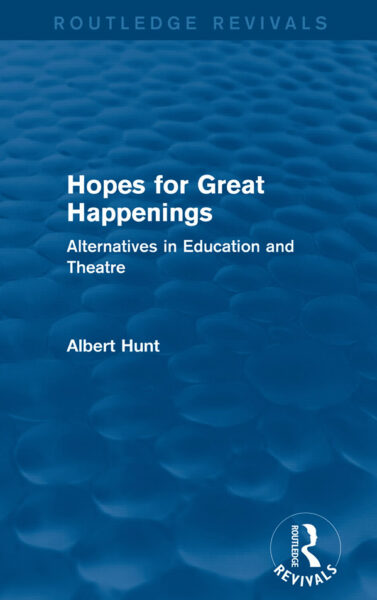
Hopes for Great Happenings: Alternatives in Education and Theatre
When Albert Hunt joined the staff of the Regional College of Art, Bradford, in 1965, he found himself working mostly with ‘non-academic’ students on a fascinating range of games, projects and theatre events outside the main stream of exam-oriented education. In this title, first published in 1976, Albert Hunt describes this experience, and explains how he himself evolved from a conventional grammar school teacher to a radical and experimental educator. In particular, Hunt describes the evolution of new working relationships between teachers and students, which in turn highlight an alternative way of viewing society. Hopes for Great Happenings is not only a vividly interesting account of Albert Hunt’s teaching methods, but is of practical value to anybody involved in the study of liberal arts, theatre studies or in community arts work.
By Albert Hunt
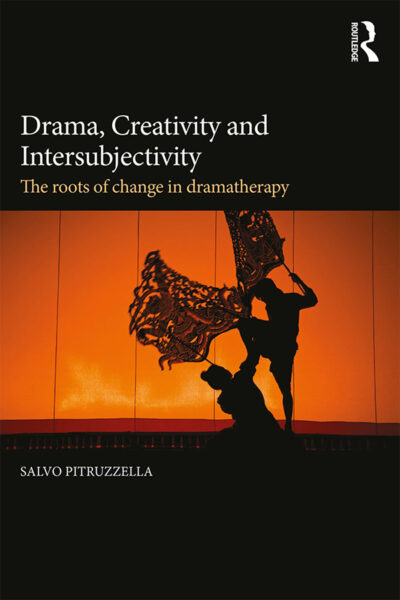
Drama, Creativity and Intersubjectivity
Drama, Creativity and Intersubjectivity presents a new theoretical approach to dramatherapy. The book examines the key concepts of creativity and intersubjectivity in detail, through a comparison of their manifestations in children’s life and the major scientific studies and developing research in the fields. Linking these concepts, Salvo Pitruzzella argues that ‘identity’ as a construct is now outmoded, and needs to be replaced with a more relational model. His ideas impact on dramatherapy theory, updating its basic tenets, and providing insight into how it practically works, with a focus on imagination as a major tool to support change.
By Salvo Pitruzzella
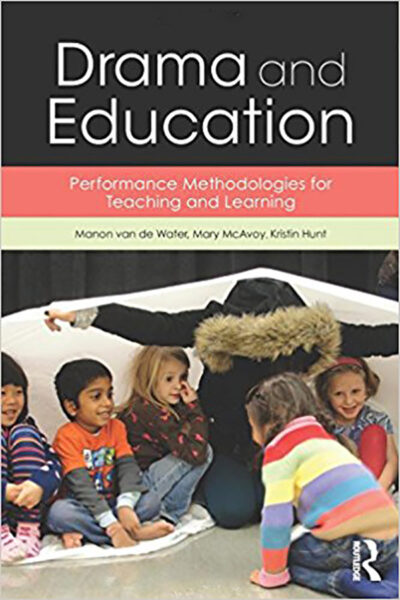
Drama and Education: Performance Methodologies for Teaching and Learning
Drama and Education provides a practical, comprehensive guide to drama as a tool for teaching and learning. It is among the first practical drama and performance textbooks that address brain-based, neuroscientific research, making the argument that creativity is necessary in our lives, that embodied learning is natural and essential, and that contextual learning helps us find our place in society in relationship to other peoples and cultures. As well as a historical and theoretical overview of the field, it provides rationale and techniques for several specific methodologies: linear drama, process-oriented drama, drama for social justice, and performance art.
By Manon van de Water, Mary McAvoy and Kristin Hunt
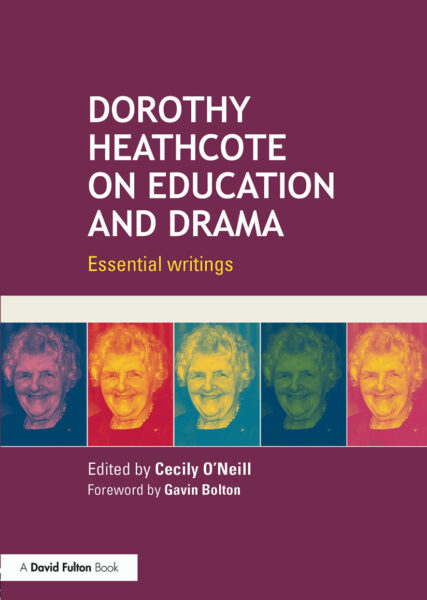
Dorothy Heathcote on Education and Drama: Essential Writings
Dorothy Heathcote MBE was a unique educator whose practice had a vital influence on the international development of Drama in Education. For more than half a century she inspired generations of teachers and educators all over the world by her original and authentic approach to teaching and learning.
This new collection of the essential writings of Dorothy Heathcote traces the development of her practice over her long professional life. It combines the most important and influential articles from the first edition with more recent pieces to show the significant development in Heathcote’s thinking and practice.

Youth Theatre – Drama for Life
Youth Theatre: Drama for Life defines the youth theatre process, by outlining its constituent parts and explaining how these activities work in order to support young people’s development. As well as describing what is done in youth theatre, it also explores why it’s done and how to ensure the best possible outcomes. Michael Richardson has worked in youth theatre for over 20 years, has been involved in the training of other practitioners, and in the strategic development of the youth theatre sector in the UK. As well as giving key tips and advice from his own invaluable experience, Richardson offers comments from practitioners and participants on what makes a successful youth theatre experience.
By Michael Richardson

Theatre in Education in Britain: Origins, Development and Influence
Following on from the 50th anniversary of the birth of Theatre in Education in Britain in 2015, this is an essential and timely companion to the story of TIE. It contextualizes it within the political and educational landscape of the last fifty years and examines its legacy today. Through this, Roger Wooster offers insights into future possibilities and applications in the field of Applied Theatre, drama in schools and pedagogical theory. With examples and analysis of international developments in TIE, and a foreword by Philip Taylor (NYU, USA), the volume provides a wide-ranging account of past and current practice.
By Roger Wooster

Performance in the Twenty-First Century
Performance in the Twenty-First Century: Theatres of Engagement addresses the reshaping of theatre and performance after postmodernism. Andy Lavender argues provocatively that after the ‘classic’ postmodern tropes of detachment, irony, and contingency, performance in the twenty-first century engages more overtly with meaning, politics and society. It involves a newly pronounced form of personal experience, often implicating the body and/or one’s sense of self.
By Andy Lavender

Locating the Audience: How People Found Value in National Theatre Wales
How do audiences experience live performances? What is gained when a national theater is born? These questions and more are the subject of Locating the Audience—the first in-depth study of how people form relationships with a new theater company. Investigating the inaugural season of National Theatre Wales, Kirsty Sedgman explores how different people felt about the way their communities were engaged and their places “performed” by the theater’s productions. Mapping the complex interplay between audience experience and identity, the book presents a significant contribution to our contemporary project of defining cultural value. Rather than understanding value as an end point—“impact”—Sedgman makes the provocative claim that cultural value can better be understood as a process. By talking to audiences and capturing pleasures and disappointments, Locating the Audience shows the meaning-making process in action.
By Kirsty Sedgman

Hopes for Great Happenings: Alternatives in Education and Theatre
When Albert Hunt joined the staff of the Regional College of Art, Bradford, in 1965, he found himself working mostly with ‘non-academic’ students on a fascinating range of games, projects and theatre events outside the main stream of exam-oriented education. In this title, first published in 1976, Albert Hunt describes this experience, and explains how he himself evolved from a conventional grammar school teacher to a radical and experimental educator. In particular, Hunt describes the evolution of new working relationships between teachers and students, which in turn highlight an alternative way of viewing society. Hopes for Great Happenings is not only a vividly interesting account of Albert Hunt’s teaching methods, but is of practical value to anybody involved in the study of liberal arts, theatre studies or in community arts work.
By Albert Hunt

Drama, Creativity and Intersubjectivity
Drama, Creativity and Intersubjectivity presents a new theoretical approach to dramatherapy. The book examines the key concepts of creativity and intersubjectivity in detail, through a comparison of their manifestations in children’s life and the major scientific studies and developing research in the fields. Linking these concepts, Salvo Pitruzzella argues that ‘identity’ as a construct is now outmoded, and needs to be replaced with a more relational model. His ideas impact on dramatherapy theory, updating its basic tenets, and providing insight into how it practically works, with a focus on imagination as a major tool to support change.
By Salvo Pitruzzella

Drama and Education: Performance Methodologies for Teaching and Learning
Drama and Education provides a practical, comprehensive guide to drama as a tool for teaching and learning. It is among the first practical drama and performance textbooks that address brain-based, neuroscientific research, making the argument that creativity is necessary in our lives, that embodied learning is natural and essential, and that contextual learning helps us find our place in society in relationship to other peoples and cultures. As well as a historical and theoretical overview of the field, it provides rationale and techniques for several specific methodologies: linear drama, process-oriented drama, drama for social justice, and performance art.
By Manon van de Water, Mary McAvoy and Kristin Hunt

Dorothy Heathcote on Education and Drama: Essential Writings
Dorothy Heathcote MBE was a unique educator whose practice had a vital influence on the international development of Drama in Education. For more than half a century she inspired generations of teachers and educators all over the world by her original and authentic approach to teaching and learning.
This new collection of the essential writings of Dorothy Heathcote traces the development of her practice over her long professional life. It combines the most important and influential articles from the first edition with more recent pieces to show the significant development in Heathcote’s thinking and practice.
Editorial Board

Volume 8 Editorial Board
Viv Kerridge
Amanda Kipling
Chris Lawrence
Nicola Toneri

Volume 8 Editorial Board
Viv Kerridge
Amanda Kipling
Chris Lawrence
Nicola Toneri
Notes on Authors

Volume 8 Notes on Authors
Hasan Akbulut is a professor in İstanbul University, Faculty of Communication, Department of Radi TV and Cinema in Turkey.

Volume 8 Notes on Authors
Hasan Akbulut is a professor in İstanbul University, Faculty of Communication, Department of Radi TV and Cinema in Turkey.
Table of Contents

